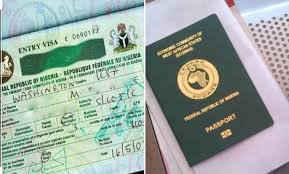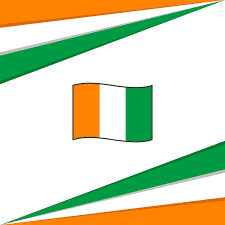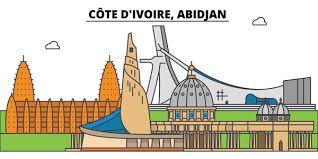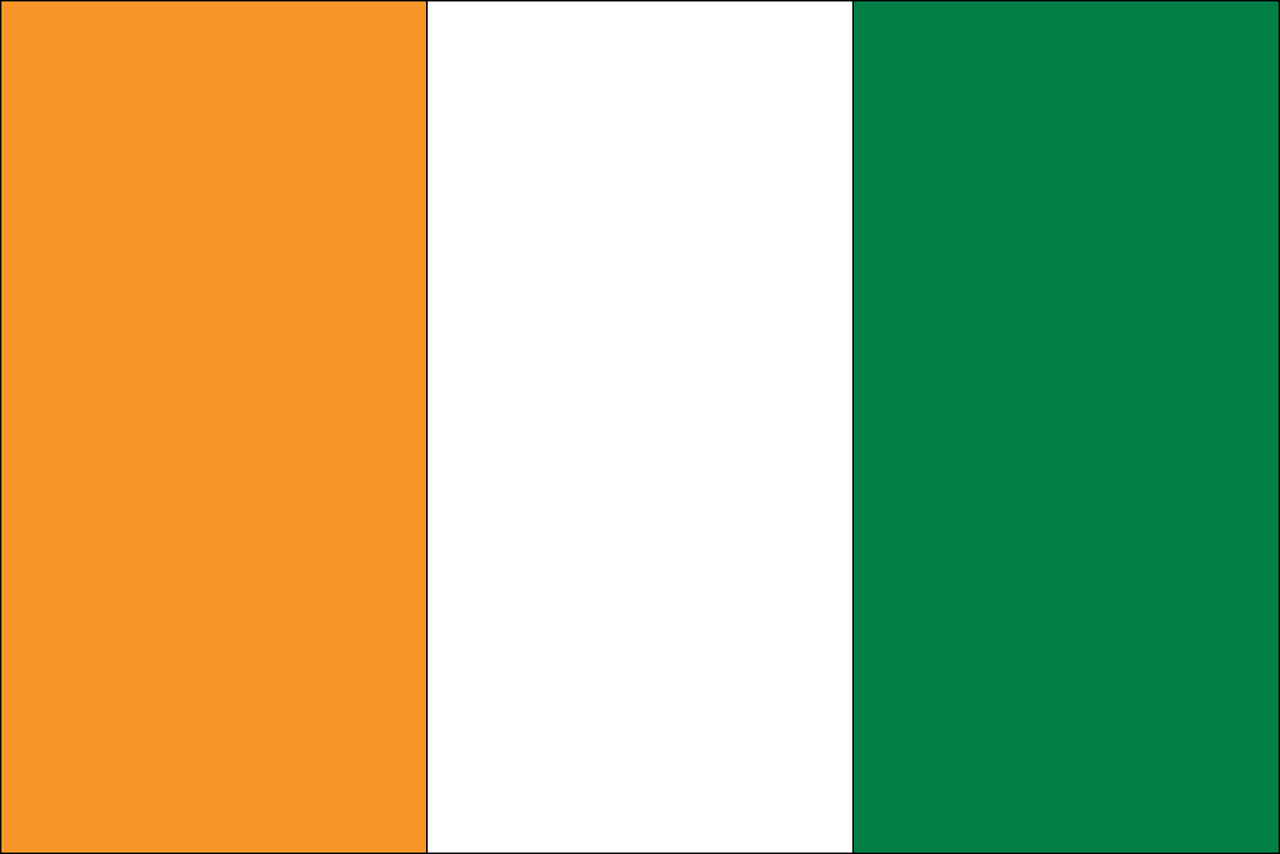Cote d’ivore eVisa is one of the popular eVisas in Africa, which serves various purposes, including tourism, business, medical visit, and study. Citizens of almost all countries across the globe can apply for the eVisa, provided their passports are valid for at least six months.
The eVisa is valid for 90 days and allows multiple entries within this period. This depicts great value for money.
If you are not an Cote d’ivore citizen but a foreigner planning to visit the country at any point, you definitely need an Ivory Coast (Cote d’ivore) eVisa. In this article, we review the eVisa introduced by the government and how to obtain it.

Ivory Coast, or Core D’Ivoire in French, is an African country located in the Western region of the country with a visa policy for different types of visitors. Those who want to visit the country for a long time require a Conventional visa issued by the embassy or consulate in their respective countries.
However, short-stay visitors don’t require a normal valid visa but an eVisa, which they can obtain online. In addition, the country’s visa policy determines who can and cannot enter the country and through which visitors can enter. For example, there are visa-exempt countries whose citizens don’t need a visa to enter Ivory Coast, and they are predominantly fellow West African countries that are members of the Economic Community of West African States (ECOWAS)
So, if you are not from or within an ECOWAS country, you need a visa to visit Cote d’ivore.
The Significance of eVisas in Modern Travel
The concept of eVisas has significantly transform travel by streamlining the visa application process. These electronic visas are issued online or digitally, making it convenient for travelers to obtain necessary travel permits. Travllers - tourists no longer have to go through the hassle of obtaining paper visa.
Types of eVisas Available
- Tourism e-Visa: Ideal for leisure travelers exploring Cote d’Ivoire’s vibrant culture, beaches, and wildlife.
- Business e-Visa: For business meetings, conferences, or trade-related visits.
- Transit e-Visa: If you’re passing through Cote d’Ivoire on your way to another destination.
Advantages of eVisas
Here are major advantages of eVisas over other forms of travelling permit (like paper visa).
Convenience: Apply from anywhere with an internet connection. This is one of the benefits of opting for eVisas, as you can process your application from the comfort of your home.
Efficiency: Faster processing times compared to traditional visas. You literally spend lesser time compare to other type of visa application.
Security: Digitally tracked and authenticated. In this case, there is adequate assurance of security of your travelling document.
Ivory Coast (Coté d’lvoire) Online E-Visa
The process of applying for an electronic visa to Ivory Coast is entirely online. The Ivory Coast eVisa is issued for tourism, business, medical or study purposes. Electronic visas are only valid for holders of ordinary passports, whose passports need to be valid for at least six months.
Which Countries Can Apply for Ivory Coast e-Visa?
Citizens of almost all countries can apply for the Ivory Coast eVisa. If you are a citizen of one of the countries listed below, you can apply for an e-Visa to Côte d’Ivoire:
- Afghanistan
- Aland Islands
- Albania
- Algeria
- American Samoa
- Andorra
- Anguilla
- Antarctica
- Antigua and Barbuda
- Argentina
- Armenia
- Aruba
- Australia
- Austria
- Azerbaijan
- Bahamas
- Bahrain
- Bangladesh
- Barbados
- Belarus
- Belgium
- Belize
- Bermuda
- Bhutan
- Bolivia
- Bonaire
- Bosnia and Herzegovina
- Botswana
- Brazil
- British Indian Ocean Territory
- British Virgin Islands
- Brunei Darussalam
- Bulgaria
- Burkina Faso
- Cambodia
- Cameroon
- Canada
- Cape Verde
- Cayman Islands
- Central African Republic
- Chile
- China
- Christmas Island
- Cocos Islands
- Colombia
- Comoros
- Cook Islands
- Costa Rica
- Croatia
- Cuba
- Curacao
- Czech Republic
- Democratic Republic of the Congo
- Denmark
- Djibouti
- Dominica
- Dominican Republic
- Ecuador
- Egypt
- El Salvador
- Equatorial Guinea
- Eritrea
- Estonia
- Ethiopia
- Falkland Islands
- Faroe Islands
- Federated States of Micronesia
- Fiji
- Finland
- France
- French Guiana
- French Polynesia
- Gabon
- Gambia
- Georgia
- Germany
- Gibraltar
- Greece
- Greenland
- Grenada
- Guadeloupe
- Guam
- Guatemala
- Guernsey
- Guinea
- Guinea-Bissau
- Guyana
- Honduras
- Hong Kong
- Hungary
- Iceland
- India
- Iran
- Iraq
- Ireland
- Isle of Man
- Israel
- Italy
- Jamaica
- Japan
- Jersey
- Jordan
- Kazakhstan
- Kiribati
- Kuwait
- Kyrgyzstan
- Laos
- Latvia
- Lebanon
- Liberia
- Libya
- Liechtenstein
- Lithuania
- Luxembourg
- Macau
- Macedonia
- Malawi
- Malaysia
- Maldives
- Mali
- Malta
- Marshall Islands
- Martinique
- Mauritania
- Mayotte
- Mexico
- Moldova
- Monaco
- Mongolia
- Montenegro
- Montserrat
- Morocco
- Mozambique
- Myanmar
- Namibia
- Nauru
- Nepal
- Netherlands
- New Caledonia
- New Zealand
- Nicaragua
- Niger
- Nigeria
- Niue
- Norfolk Island
- North Korea
- Northern Mariana Islands
- Norway
- Oman
- Pakistan
- Palau
- Panama
- Papua New Guinea
- Paraguay
- Peru
- Pitcairn Islands
- Poland
- Portugal
- Puerto Rico
- Qatar
- Republic of Cyprus
- Reunion
- Romania
- Russian Federation
- Rwanda
- Saint Barthelemy
- Saint Helena
- Saint Lucia
- Saint Martin
- Saint Pierre and Miquelon
- Saint Vincent and the Grenadines
- Samoa
- San Marino
- Saudi Arabia
- Serbia
- Sierra Leone
- Sint Maarten
- Slovakia
- Slovenia
- Solomon Islands
- Somalia
- South Africa
- South Georgia and the South Sandwich Islands
- South Korea
- Spain
- Sri Lanka
- Sudan
- Suriname
- Svalbard and Jan Mayen
- Swaziland
- Sweden
- Switzerland
- Syrian Arab Republic
- Taiwan
- Tajikistan
- Thailand
- Timor-Leste
- Togo
- Tokelau
- Tonga
- Trinidad and Tobago
- Tunisia
- Turkey
- Turkmenistan
- Turks and Caicos Islands
- Tuvalu
- Ukraine
- United Arab Emirates
- United Kingdom
- United States
- United States Virgin Islands
- Uruguay
- Uzbekistan
- Vanuatu
- Vatican City
- Venezuela
- Vietnam
- Wallis and Futuna
- Yemen
- Zambia
- Zimbabwe
Citizens of certain countries do not require a visa at all to enter Cote d’Ivoire for short term stays.
How to Apply for a Cote d’ivore eVisa?
The application process for an Ivory Coast e-Visa is as follows:
- Start your online application on the official e-visa website of Ivory Coast. Begin by choosing your visa. Currently, the only visa you can apply for is valid for three months.
- Enter your personal information. Select your gender, and write down your name, last name, date of birth, country of birth, place of birth, nationality of birth, current nationality, and marital status. You must write down all information as they appear on your passport. This is crucial, as your visa application will be rejected if the information on your application does not exactly match the information on your passport.
- Enter additional personal information. You are required to write down your private address, ZIP code, city, country of residence, telephone number, and profession (mandatory). After you write down your email address, you will receive an email with a verification code. Verify your email address and move on to the next step.
- Enter your travel information. Write down your passport number, issuing country, the date your passport was issued, and the expiration date. Next, select your reason for travel (business, mission, holiday, health, or study). You must specify the date you will arrive, as well as return from Ivory Coast.
- Attach documents. Next, you must upload your passport, ticket reservation, and hotel reservation.
- Enter your contact information. Write down the name and address of your family in the Ivory Coast and the address of your stay in the Ivory Coast.
- Pay the application fee. The payment is made online. You must pay the application fee, otherwise your visa application will not be processed further.
How Will I Receive My Cote d’ivore eVisa?
You will receive a document with a bar code which is the authority’s response (of whether your visa application was accepted or refused) at your email address. You don’t need to visit any embassy or consulate in order to collect it.
Do I Have to Print Out the Cote d’ivore eVisa When I Travel?
Yes, you do. Before boarding the plane, print out the registration receipt and the approved pre-enrollment document as soon as you receive it, as you will need to present it at border control. The visa is, then, printed and delivered immediately.

What Documents Do I Need for a Cote d’ivore eVisa?
In order to apply for an Ivory Coast e-Visa, you need the following documents:
- Identity page of the passport.
- Round-trip plane ticket. You must provide proof that you have reserved a flight ticket back to your home country.
- Letter of invitation or proof of accommodation.
Important:Make sure you scan and upload the documents listed above carefully and correctly. If any of the documents are not uploaded or can not be seen clearly, your visa will be rejected. The documents must be scanned in JPG/PNG/GIF/PDF format. The maximum size per each file must be less than or equal to 1MB.
When you arrive at the airport, you need to present the following:
- International certificate of vaccination against yellow fever. (You must have this document with you when you travel. You do not need to upload this document to the online form).
How Much Does the Cote d’ivore eVisa Cost?
Ivory Coast e-Visa costs 73 EUROS. The fee includes bank charges. The payment is made online with a Visa Card or a MasterCard. When you make the payment, you will automatically receive an email with a payment certificate that holds your unique and personal code of payment.
How Long Does the Cote d’ivore eVisa Take to Process?
Your online visa application to Ivory Coast might take two working days, specifically 48 hours, to process. There are cases when an application might take a longer time to process. This is due to the authentication of certain documents.
How Long Is theCote d’ivore eVisa Valid For?
An e-Visa to Ivory Coast is valid for 3 months. It is multiple-entry, allowing applicants to enter the country multiple times within the validity period. The maximum amount of time you can stay is 90 days. You should leave the country on or before 90 days.
When Should I Apply for the Cote d’ivore eVisa?
It is advisable to apply at least seven days before you intend to travel to the country.
Does Obtaining an eVisa Guarantee Me Entry Into Cote d’ivore?
Applying for an e-Visa does not entitle you to a visa. This is because your online application can either be accepted or refused by the authorities.
Can I Work in Cote d’ivore on an eVisa?
No, you cannot. You should not accept any job during your stay in Ivory Coast, seek or remain permanently. Additionally, you should leave the country at the expiration date of the visa.
What Port of Entry Can I Use With the eVisa for Cote d’ivore?
The Cote d’ivore eVisa is only eligible if you arrive at Abidjan Félix Houphouët-Boigny International Airport. You will not be allowed to enter if you decide to enter through another port of entry.
FAQs:
- Does Ivory Coast have eVisa? Yes, it offers an e-Visa system3.
- Does Nigeria need a visa to go to Ivory Coast? Yes, Nigerian citizens require a visa.
- Can I get a visa on arrival in Cote d’Ivoire? No, e-Visa is the recommended option.
- How much is a visa to Cote d’Ivoire? The e-Visa fee is €73.
- Is Abidjan visa-free for Nigerians? No, a visa is required.
- How long does the Ivory Coast eVisa take? Typically within 48 hours4.
Explore Cote d’Ivoire’s Rich Heritage!

This is an opportunity for you to discover the vibrant landscapes, historical sites, and warm hospitality of Cote d’Ivoire. You will finally get to experience all you’ve been reading about the country. Bon voyage!


